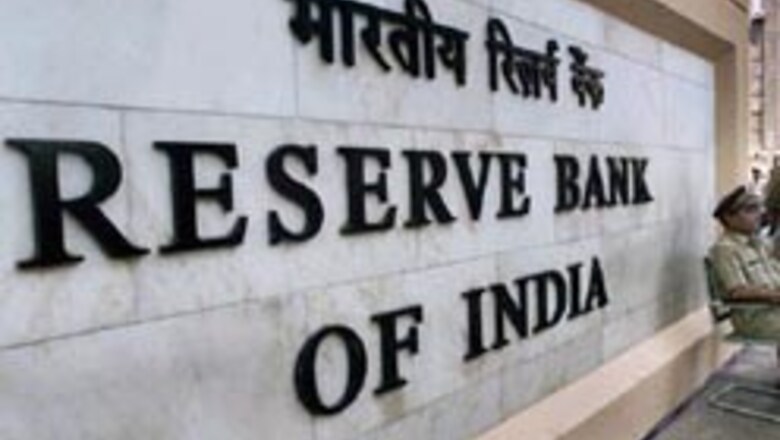
views
Mumbai: The Reserve Bank of India's (RBI) quarterly policy statement released on Friday has a complete plan in place to keep the Indian economy on track. The Bank has decided to keep the SLR norms keep unchanged, and so have the repo rates and CRR been left untouched. The bank also hopes to rein in inflation to seven per cent by March end.
Interest rates:
Repo rate: The RBI keeps repo rate unchanged at 8.00 per cent. This is the rate at which the RBI adds funds to the money market.
Reverse: The RBI kept the reverse repo rate unchanged at 6.00 per cent. This is the rate at which the RBI absorbs cash from the market.
Cash Reserve Ratio (CRR): The RBI kept the the CRR unchanged at 6.5 per cent. The CRR is the percentage of banks' deposits which they must keep as cash with the RBI.
Bank Rates: It kept the bank rate unchanged at 6.0 per cent. Banks use this rate to price their long-term loans to individuals and companies.
The bank states that its objectives are set:
- Ensure a monetary and interest rate environment that optimally balances the objectives of financial stability, price stability and well-anchored inflation expectations, and growth,
- Continue with the policy of active demand management of liquidity through appropriate use of all instruments including the CRR, open market operations such as market stabilisation scheme and liquidity adjustment facility to maintain orderly conditions in financial markets,
- In the context of the uncertain and unsettled global situation and its indirect impact on the domestic economy in general and the financial markets in particular, closely and continuously monitor the situation and respond swiftly and effectively to developments, employing both conventional and unconventional measures,
- Emphasise credit quality and credit delivery, in particular, for employment-intensive sectors, while pursuing financial inclusion.
Economy and the GDP growth:
The RBI lowered the 2008/09 forecast for growth to 7.5-8.0 per cent from around 8.0 per cent.
Inflation:
The RBI kept its projection of 7.0 per cent by end-March 2009. Aims for below 5 per cent at the earliest.
Key quotes (on tools to be used):: The bank states that the central task for the conduct of monetary policy has become more complex than before, with increasing priority being given to financial stability.
The current challenge, accordingly, is to strike an optimal balance between preserving financial stability, maintaining price stability, anchoring inflation expectations and sustaining the growth momentum.
To manage this challenge, the Reserve Bank has deployed and will continue to deploy both conventional and unconventional tools."
On inflation: The bank said, "All in all, it is the Reserve Bank's assessment that inflation continues to be a concern and that we cannot afford to let the guard slip on our inflation vigil."
On credit growth: "Non-food credit has posted a growth of 29 per cent on a year-on-year basis as of October 10, 2008. This is well beyond the projection of 20 per cent for 2008/09.
Such a rapid rate of credit growth is a cause for concern and will warrant intensified monitoring and continued correction.
While maintaining credit quality has always been our central concern, the global financial crisis has reinforced risks of allowing rapid and unbridled credit expansion and the resultant systemic threat to financial stability."
On liquidity: "The Reserve Bank will maintain a close vigil on the entire financial system to prevent pressures building up in the financial markets. This will include enhancing liquidity if pressures persist.
This could also mean curtailing liquidity if the recent liquidity easing measures are seen to have injected excess liquidity, thereby stoking inflationary pressures."
Global crisis: "In what is clear evidence of the depth and degree of financial integration, this uncertainty is transmitting also to countries outside the epicenter of the crisis.
India cannot be immune to these global developments. These external pressures coming on top of already existing domestic pressures pose complex challenges for monetary management. This is uncharted territory with no standard or conventional solutions."
Meanwhile, the Finance Minister P Chidambaram has said that calm will return to global markets.
He also reiterated that the RBI has retained the flexibility to act and will do so swiftly if needed.

















Comments
0 comment